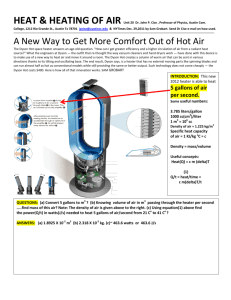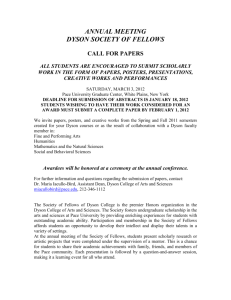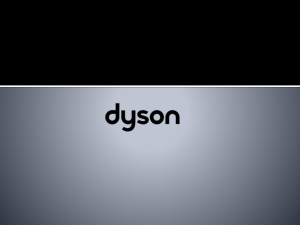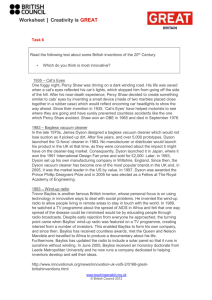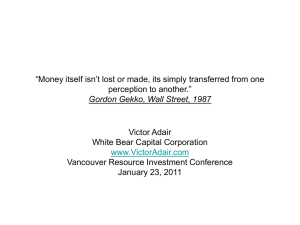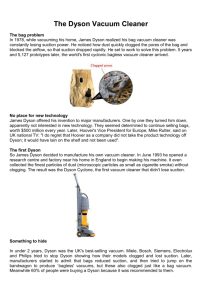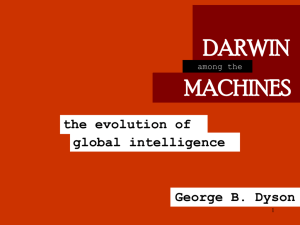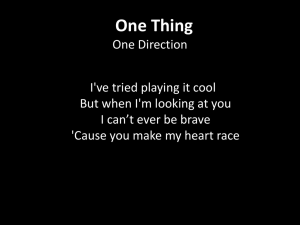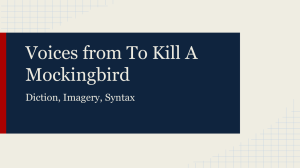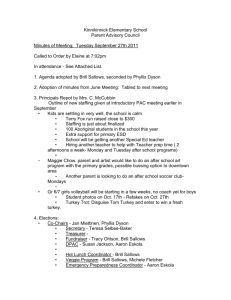Michael Eric Dyson Michael Eric Dyson was named by Ebony as
advertisement
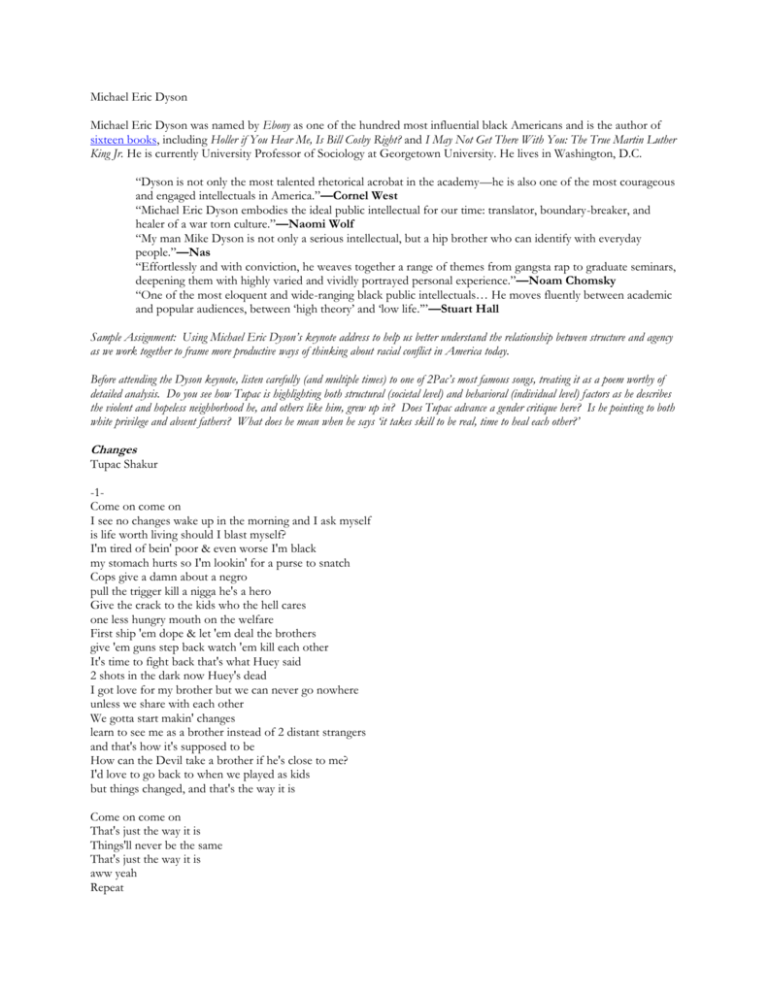
Michael Eric Dyson Michael Eric Dyson was named by Ebony as one of the hundred most influential black Americans and is the author of sixteen books, including Holler if You Hear Me, Is Bill Cosby Right? and I May Not Get There With You: The True Martin Luther King Jr. He is currently University Professor of Sociology at Georgetown University. He lives in Washington, D.C. “Dyson is not only the most talented rhetorical acrobat in the academy—he is also one of the most courageous and engaged intellectuals in America.”—Cornel West “Michael Eric Dyson embodies the ideal public intellectual for our time: translator, boundary-breaker, and healer of a war torn culture.”—Naomi Wolf “My man Mike Dyson is not only a serious intellectual, but a hip brother who can identify with everyday people.”—Nas “Effortlessly and with conviction, he weaves together a range of themes from gangsta rap to graduate seminars, deepening them with highly varied and vividly portrayed personal experience.”—Noam Chomsky “One of the most eloquent and wide-ranging black public intellectuals… He moves fluently between academic and popular audiences, between ‘high theory’ and ‘low life.’”—Stuart Hall Sample Assignment: Using Michael Eric Dyson’s keynote address to help us better understand the relationship between structure and agency as we work together to frame more productive ways of thinking about racial conflict in America today. Before attending the Dyson keynote, listen carefully (and multiple times) to one of 2Pac’s most famous songs, treating it as a poem worthy of detailed analysis. Do you see how Tupac is highlighting both structural (societal level) and behavioral (individual level) factors as he describes the violent and hopeless neighborhood he, and others like him, grew up in? Does Tupac advance a gender critique here? Is he pointing to both white privilege and absent fathers? What does he mean when he says ‘it takes skill to be real, time to heal each other?’ Changes Tupac Shakur -1Come on come on I see no changes wake up in the morning and I ask myself is life worth living should I blast myself? I'm tired of bein' poor & even worse I'm black my stomach hurts so I'm lookin' for a purse to snatch Cops give a damn about a negro pull the trigger kill a nigga he's a hero Give the crack to the kids who the hell cares one less hungry mouth on the welfare First ship 'em dope & let 'em deal the brothers give 'em guns step back watch 'em kill each other It's time to fight back that's what Huey said 2 shots in the dark now Huey's dead I got love for my brother but we can never go nowhere unless we share with each other We gotta start makin' changes learn to see me as a brother instead of 2 distant strangers and that's how it's supposed to be How can the Devil take a brother if he's close to me? I'd love to go back to when we played as kids but things changed, and that's the way it is Come on come on That's just the way it is Things'll never be the same That's just the way it is aww yeah Repeat -2I see no changes all I see is racist faces misplaced hate makes disgrace to races We under I wonder what it takes to make this one better place, let's erase the wasted Take the evil out the people they'll be acting right 'cause both black and white is smokin' crack tonight and only time we chill is when we kill each other it takes skill to be real, time to heal each other And although it seems heaven sent We ain't ready, to see a black President, uhh It ain't a secret don't conceal the fact the penitentiary's packed, and it's filled with blacks But some things will never change try to show another way but you stayin' in the dope game Now tell me what's a mother to do bein' real don't appeal to the brother in you You gotta operate the easy way "I made a G today" But you made it in a sleazy way sellin' crack to the kid. " I gotta get paid," Well hey, well that's the way it is We gotta make a change... It's time for us as a people to start makin' some changes. Let's change the way we eat, let's change the way we live and let's change the way we treat each other. You see the old way wasn't working so it's on us to do what we gotta do, to survive. -3And still I see no changes can't a brother get a little peace It's war on the streets & the war in the Middle East Instead of war on poverty they got a war on drugs so the police can bother me And I ain't never did a crime I ain't have to do But now I'm back with the blacks givin' it back to you Don't let 'em jack you up, back you up, crack you up and pimp slap you up You gotta learn to hold ya own they get jealous when they see ya with ya mobile phone But tell the cops they can't touch this I don't trust this when they try to rush I bust this That's the sound of my tool you say it ain't cool my mama didn't raise no fool And as long as I stay black I gotta stay strapped & I never get to lay back 'Cause I always got to worry 'bout the pay backs some buck that I roughed up way back comin' back after all these years rat-a-tat-tat-tat-tat that's the way it is uhh Considering Tupac and Dyson, do you see any overlap between their approach to framing our conversations about race and racial conflict and the approach outlined by Cornel West below? How important is it that West is critical of both liberals and conservatives? Does his alternative perspective (way of framing the conversation) seem like a more productive way to think about race and racial conflict to you? Why or why not? Cornel West, Race Matters (1993) Chapter One: “Nihilism in Black America” pp. 9-20. "Liberal structuralists call for full employment, health, education, and child-care programs, and broad affirmative action….Conservative behaviorists promote self-help programs, black business expansion, and non-preferential job practices… Liberal structuralists overlook the nihilistic threat [and] hesitate to talk honestly about culture, the realm of meanings and values… …Conservative behaviorists talk about values and attitudes as if political and economic structures hardly exist. They rarely, if ever, examine the innumerable ways in which black people do act on the Protestant ethic and still remain at the bottom of the social ladder…. This debate must go far beyond the liberal and conservative positions in three fundamental ways. First, we must acknowledge that structures and behavior are inseparable, that institutions and values go hand in hand. How people act and live are shaped—though in no way dictated or determined—by the larger circumstances in which they find themselves. These circumstances can be changed…. Second, culture is as much a structure as the economy or politics; it is rooted in institutions such as family, schools, churches… [So,] how people act and live are shaped by the larger [political and economic, and cultural] circumstances in which they find themselves…[and] these circumstances can be changed. Third, we must delve into the depths where neither liberals nor conservatives dare to tread, namely into the murky waters of despair and dread that now flood the streets of black America. To talk about depressing statistics of unemployment, infant mortality, incarceration, teenage pregnancy, and violent crime is one thing. But to face up to the monumental eclipse of hope, the unprecedented collapse of meaning, the incredible disregard for human (especially black) life and property in much of black America is something else. The liberal/conservative discussion conceals the most basic issue now facing black America: the nihilistic threat to its very existence. This threat is not simply a matter of relative economic deprivation and political powerlessness—though economic well-being and political clout are requisites for meaningful black progress. It is primarily a question of speaking to the profound sense of psychological depression, personal worthlessness, and social despair so widespread in black America." Finally, write a short paper that combines the analysis and data provided by Dyson with any of the material above to construct your most thoughtful analysis of why it is so important to account for both structure and agency (structure and behavior in West’s terminology), and to see structure and agency as inescapably interconnected, if we are take a serious and sober step toward a more productive way of thinking about (or framing) our conversations about race and racial conflict in America today.
